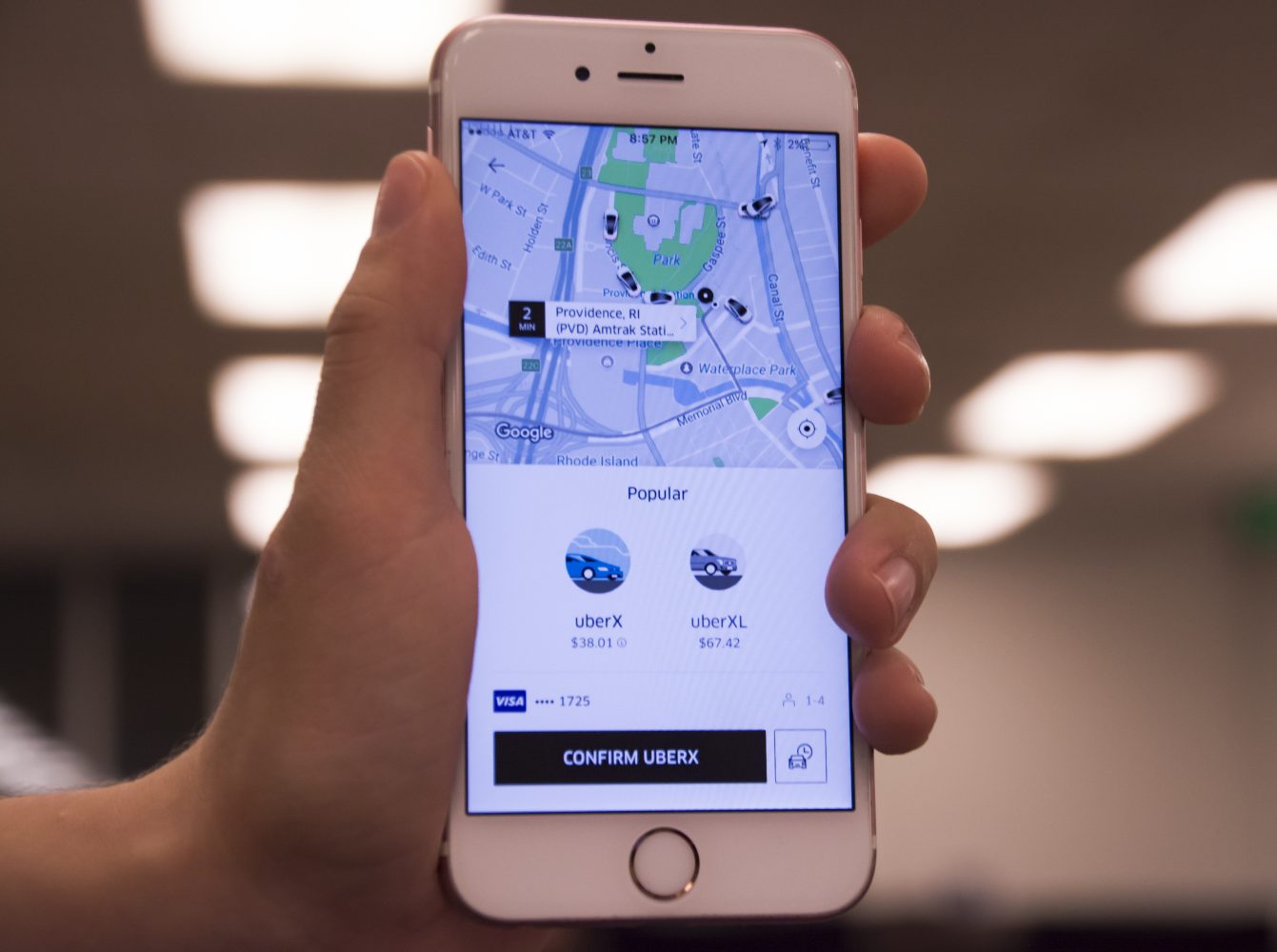Students at the University of Rhode Island cannot all pay the price of making responsible decisions. With Uber surcharges during popular nights of the week, getting home safely can be expensive.
Uber states the right to charge more when rides are in high demand. According to Uber’s website, “in these cases of very high demand, fares may increase to help ensure those who need a ride can get one.”
Shown by red spots on the map on the Uber app, prices for rides can reach over ten times their normal amount during surge hours – sometimes reaching over one hundred dollars. Many students on campus have experienced this more than once.
“There was one time that it said my ride was going to be over two hundred dollars,” freshman Jack Ryan Mazzarelli said. Living on campus without a car doesn’t leave him with many other options for going out.
There are some other options out there, however, but not many.
Transportation from a fun night out is a continuing issue on and off campus. With increased rates of drinking and driving, it is good to know the safe and affordable options to get back to campus. When Uber is insanely highly priced during high demand hours, options like Lyft, or appointing a “sober driver” are agreeably the better option.
Freshman Ariana Wynn said she prefers Lyft to Uber.
“It’s cheaper,” Wynn said. Although it’s not as popular as Uber, she said it is often more available as well.
One of the best way to save money on a night out, according to Major Michael Jagoda of University Police, is by appointing a designated driver to be responsible for their friends. Jagoda said this is also the safest option.
“Of course we don’t want students under the influence behind the wheel,” he said. “There should always be a designated driver to get these students back safely.”
Many students also agree that having a designated driver and watch over those that they bring out is a good system. This saves on money for transportation, as well as the possibility of not having an available option back to campus as Lyft and Uber are sometimes unavailable.
Jagoda also pointed out a few other options that students could look into, such as public transportation. In Wakefield, the RIPTA runs as late as 11:30 p.m.
Another option that Jagoda suggested was that when faced with no other option than to pay for the high prices of an Uber or a taxi, students should split the cost with their friends or others trying to get back to campus as well.
For students on campus, Jagoda said Safe Rides allows them to call the police from anywhere on campus for a ride back to their dorms. There was a similar program, briefly, in 2006 that gave safe rides to students on and off campus. Rhody Rides was free of charge with other students volunteering to get their peers home safely.
Somewhat similarly, another cheaper option that is out there, but not recommended by Jagoda, is young entrepreneurs looking to fill the void. Some students offer safe and sober rides to students for a lot cheaper than the online options. These ads, usually, can be found on the URI Facebook groups. While this is appears to be a great solution for both the driver and the students that need rides, it is illegal. In order to drive people and be paid for it, permits are needed, and without these, the system is not very reliable.
“I would never recommend paying a student, a stranger you don’t know, to drive,” Jagoda said. “You don’t know their intentions or if they are reliable.”





